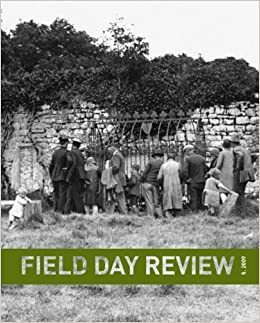Reflection: Joseph Cleary
The death of Seamus Deane on May 12, 2021 took from Irish letters one of its most exceptional, enigmatic and energetic figures.
In a career that spanned half a century, Deane established an international reputation as a literary and intellectual historian, superb critical essayist, lecturer, anthologist, poet, novelist, theatre company board member, institution-builder, journal editor, and book publisher. Few twentieth-century writer-critics – a small group that includes William Butler Yeats, Daniel Corkery or Seán Ó Faoláin – have done as much as he has done to reshape the ways in which we comprehend modern Irish literary culture, and none of these, even Yeats, has so wide an intellectual scope of reference as Deane.

Seamus Deane came from the Bogside in Derry and belonged to an exceptional generation in Northern Ireland that refused to submit to the Northern state or satisfy itself with the Irish republic’s half-hearted paternalism. When the Civil Rights movement met with brutal repression on Ulster streets that conflict turned to militancy. However, though it dominated world attention, the thirty-year war was never the whole story. For many in that unbowed generation, the refusal to lie down took the form of community activism, socialist organization, peacebuilding, international campaigning, trade unionism, women’s movements, language activism, cultural work, and many other unsung activities. For Seamus, it instigated a lifelong commitment to intellectual inquiry into Irish writing of all kinds.
His Cambridge doctoral dissertation immersed Seamus in the intellectual histories of the European Enlightenment and the French Revolution and the response to these in British letters. That study, and the awful imbroglio into which Northern Ireland descended from the late sixties just as his academic and writing career were beginning, shaped and distressed the rest of his life’s work. His unsparing demand for understanding impelled him to inspect the tangled intellectual histories of Britain and Ireland. The substrates of these histories, he felt, still fed the North’s constitutive predicament and daily fare of atrocities. For him, there could be no peace in any substantive sense without grasping these nettled histories and comprehending the grave impasses they had bequeathed to the present.
In the 1980s, Seamus put his organizational abilities and tremendous eloquence in the service of the Field Day Theatre Company. He helped to solder the talents of a small but exceptionally gifted group of cultural figures—Catholic and Protestant—into a memorable body of plays, poetry, pamphlets and criticism. Misconstrued in some quarters as cultural nationalist, Field Day represented in aspiration an eighteenth-century style republicanism. Its ambitions were civic-minded, secular, public-spirited, humanist, committed to ‘freedom’ while utterly aware of how elusive and easily abused that term has ever been. The Company’s many achievements and its dissensions and flaws have been much debated, sometimes unforgivingly. Nevertheless, without the combined imagination and energies of this company of writers and critics, for whom Seamus became a leading voice, contemporary Ireland, north and south, might still be a far more troubled place than it is now. Field Day demonstrated that writers and intellectuals could be more than merely “artful voyeurs” to atrocity — that by frontally engaging Ireland’s past and present predicaments they could help to find a language for and clear the way to better futures.
In sweep and scope, Seamus’s critical intelligence was never simply Irish but wholly European and American. He lectured with unscripted brilliance on Rousseau and Burke, Coleridge and Tocqueville, Scott and Edgeworth, Lamennais and O’Connell, Proust and Joyce, Yeats and Wallace Stevens. When late twentieth century French philosophy and theory broke on the British and American academies, many Irish critics willfully ignored the challenges. Not so Seamus—he relished the provocations posed by Derrida and Kristeva, Foucault and Barthes, Jameson and Said. He was much too original and unorthodox a critic to commit to any neatly defined methodology, but his writing was burnished by serious engagements with a wide range of European thought from the Enlightenment to the present.
The love of word and style that initially expressed itself in poetry whetted a tensile and resonant prose style emboldened with some of the finest sentences in contemporary Irish writing. His seemingly limitless curiosity would also submerge him in eighteenth-century religious tracts, nineteenth-century songs and ballads, twentieth-century high modernism, cinema and detective fiction, and of course football.
One of twentieth-century Ireland’s finest intellectuals, with a patriotic passion and organizational drive that was matchless in recent decades, Seamus was never only an intellectual. He was also an indulgent parent, a master storyteller even more arabesque and adventurously eloquent in conversation than on the page, a satirist never more acerbically funny than when narrating his own follies and mishaps, an open-handedly generous friend, a mentor to several generations of students in Ireland and the US.
Lovers of Irish writing will remember Seamus Deane for his fearless intellect, courage, eloquence and energy. In addition, as one of the very greatest Irish essayists of the twentieth century. From start to end, his career was fired by what he called, with reference to James Joyce’s Stephen Dedalus, a “passion for thinking.”
Joseph Cleary is Professor of English at Yale University. He published Outrageous Fortune: Capital and Culture in Modern Ireland (2007) with Field Day, and has edited and written the Foreword to Seamus Deane's last book: Small World: Ireland, 1798–2018, to be published by the Cambridge University Press in June 2021. He has lectured frequently in the Keough-Naughton Institute's graduate IRISH Seminar.